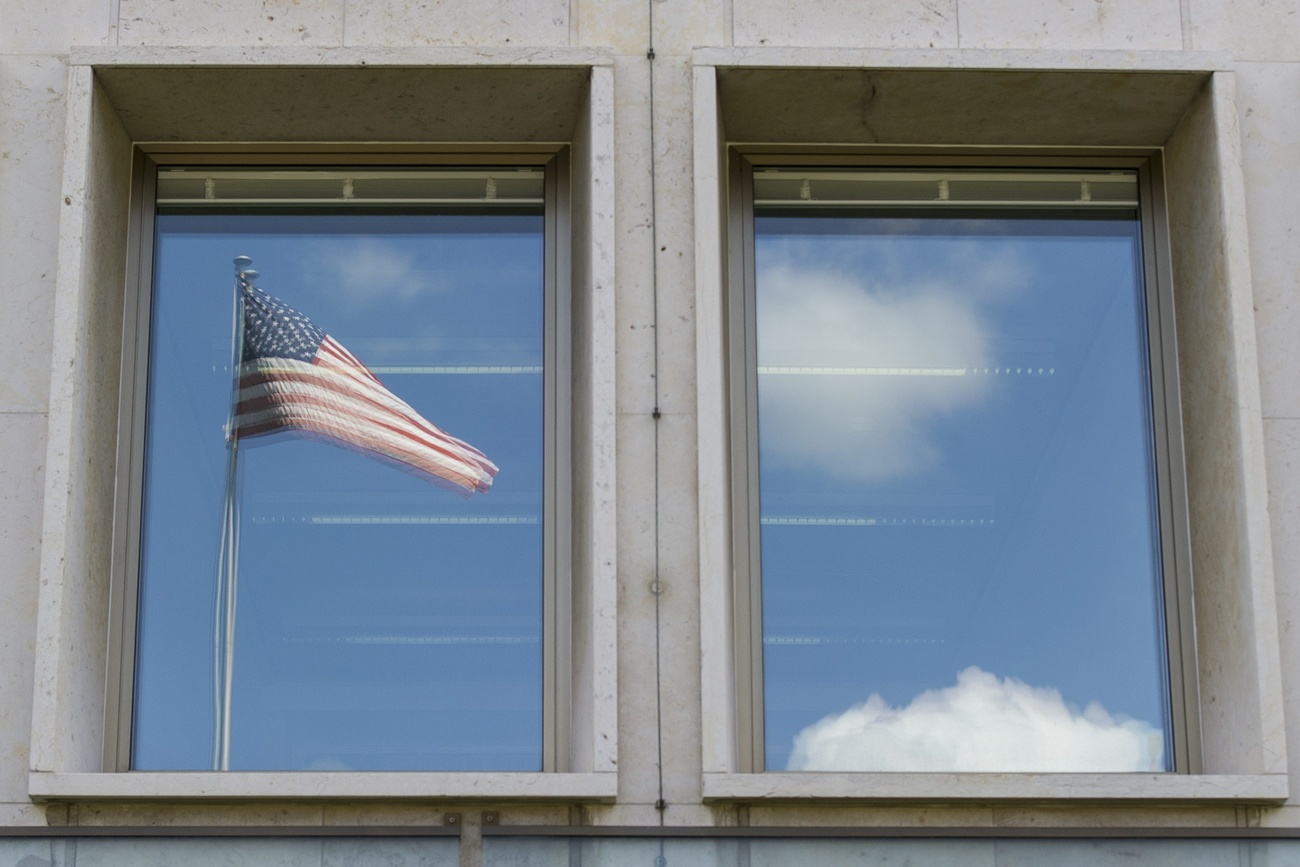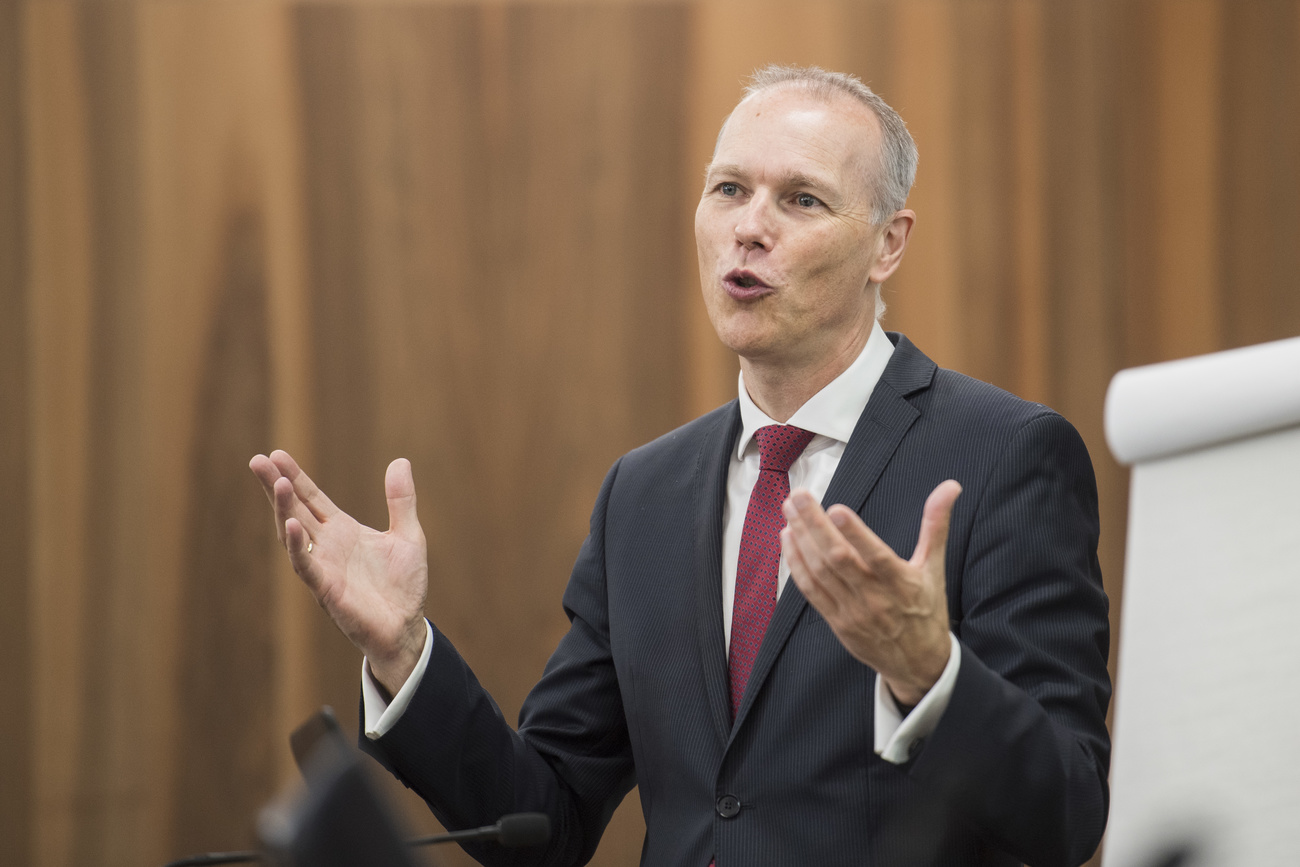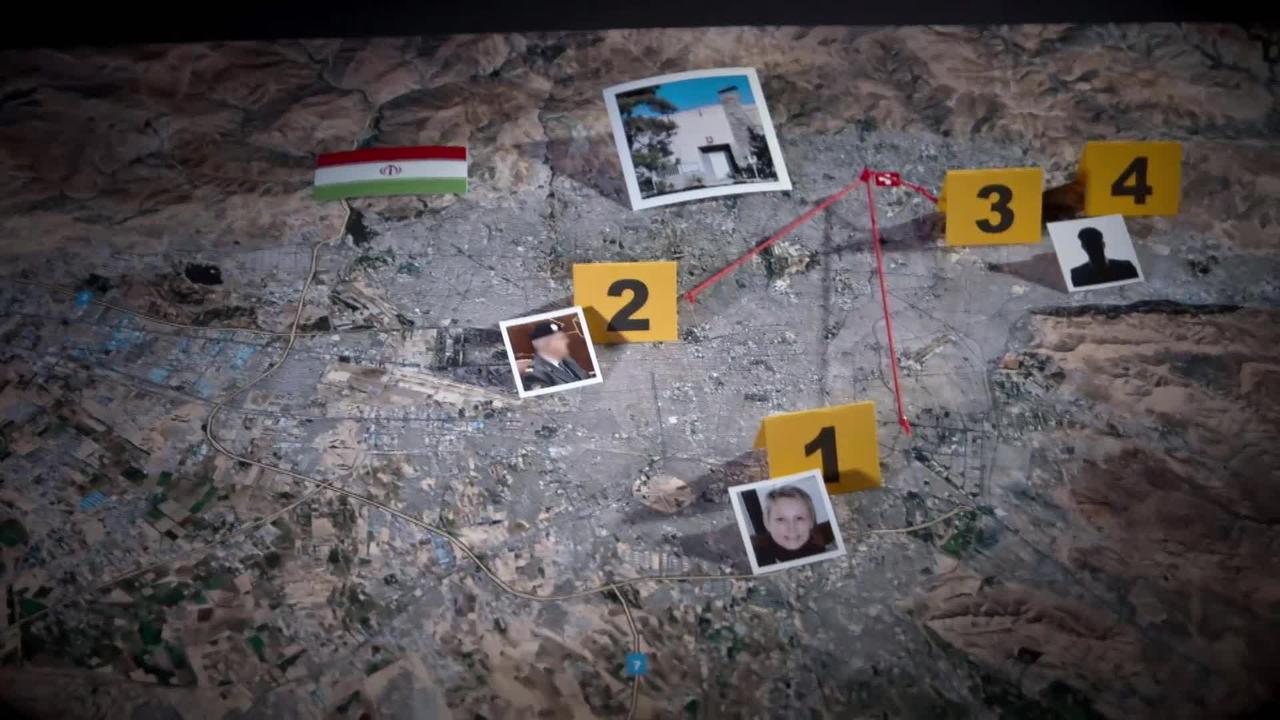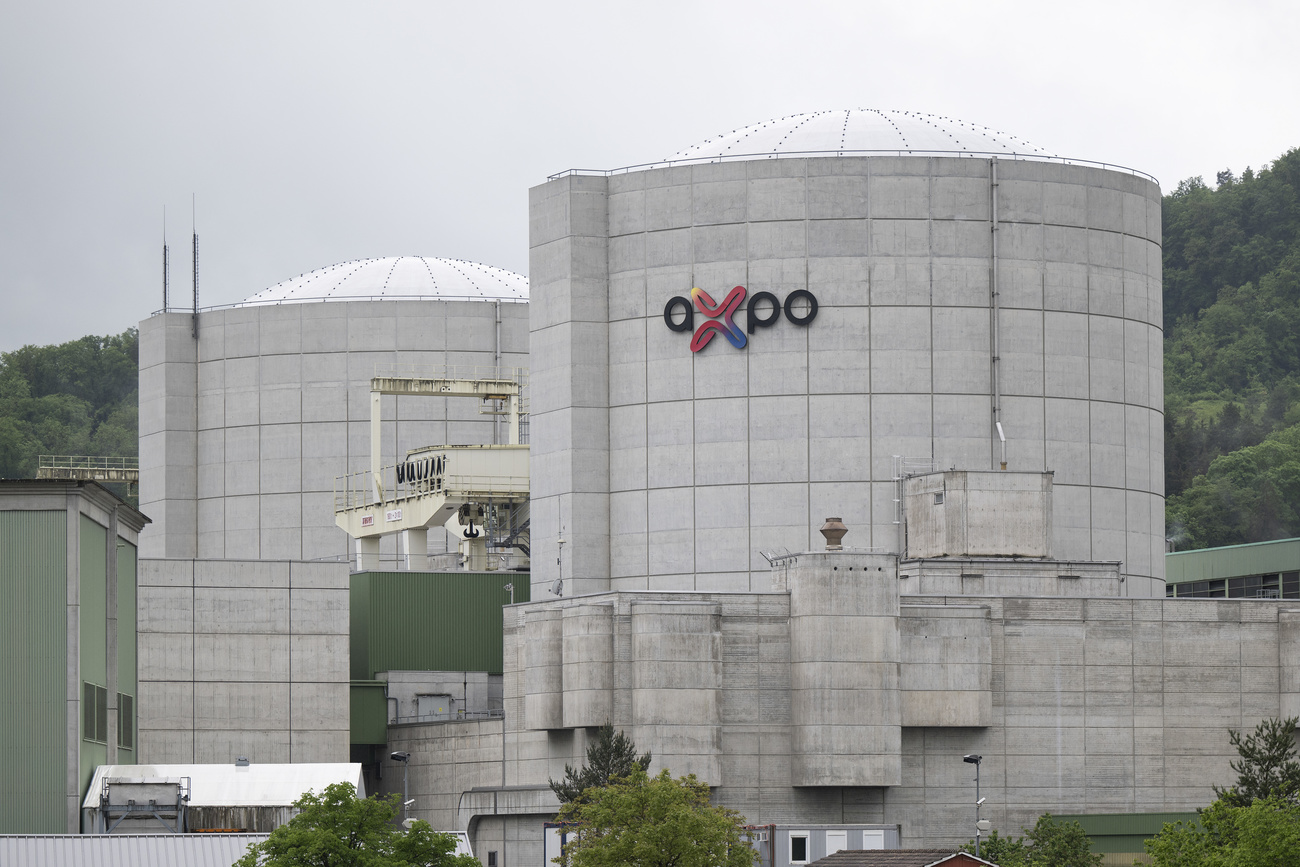

Switzerland Today
Dear Swiss Abroad,
Today, the Swiss media once again devoted ample space to the uncertainties caused by the Trump administration’s policies, primarily those related to tariffs. But the scientific community is concerned above all about US censorship in research.
We also look into mysterious deaths linked to the Swiss diplomatic mission in Iran and find out why the Beznau nuclear power station is running at half power.

The trade war launched by the Trump administration, should it continue, would cost Switzerland CHF17.5 billion ($22 billion) in 2026, around CHF2,000 per inhabitant.
This is according to Jan-Egbert Sturm, director of the Economic Research Centre (KOF) at ETH Zurich, in an interview with Blick.
On April 2, during the so-called Liberation Day, Trump announced a wave of customs duties for products exported to the US from various countries around the world, which for Switzerland was as high as 31%. Trump then suspended everything until July 9.
The government is currently negotiating with Washington to limit the scope of the tariffs, but if they were to come into force at the announced levels, the bill would be steep.
Sturm says he is especially worried about the uncertainty caused by the Trump administration’s policy, which he calls a “poison” for the economy. However, he is relatively optimistic for Switzerland, which, in his view, has a flexible economy that is well equipped to cushion international difficulties.

Today, the newspaper Le Temps takes a look at another concern related to the US administration’s policies: the restriction of access to research data, a phenomenon that also affects the Swiss scientific community, which is launching an appeal.
Since taking office, US President Donald Trump has been pursuing a policy of budget cuts and censorship, leading to the disappearance of federal databases of scientific information important for research worldwide.
In Trump’s crosshairs in particular is research related to gender, public health and the environment. Uncertainty worries the world of top Swiss research. Some universities and universities of applied sciences have already instructed their researchers not to share their results on servers located in the United States, but there are those who are calling for more.
In Le Temps, Christophe Dessimoz, director of the Swiss Bioinformatics Institute (SIB), along with other experts, is calling for the launch of a scientific data archiving effort “before it is too late”. This should be a concerted action at the Swiss level, he says, because it is a challenge that one organisation alone would not be able to meet.

Switzerland has a mandate to represent US interests in Iran, a function that puts the government in a delicate position. An investigation by Swiss public broadcaster RTS today looks back at some of the events, including the death of a diplomat, that affected the Swiss mission in the Islamic Republic before the start of the conflict between Iran and Israel.
The investigation goes into detail about the death in 2021 of Sylvie Brunner, then number two in the representation of US interests in Iran. She had access to confidential documents and information, had suffered threats and expressed concern about signs of intrusions into her flat.
She died following a fall from the 17th floor of the building where she lived, a death classified as suicide, a conclusion also reached by the Office of the Attorney General of Switzerland. But on the basis of information about the investigation and testimonies collected by RTS, it would appear that the case still has many grey areas.
Shady areas are also to be found in other cases mentioned by the RTS editorial team, such as that of Colonel Girolamo M., a soldier who made a career in the federal intelligence services. Sent to Iran after Brunner’s death, he officially fell ill in his hotel room in Tehran in 2023. Urgently repatriated to Switzerland, his face was disfigured and barely recognisable and he had injuries elsewhere on his body. After treatment, he left on a mission abroad but died a few months later in Pakistan.

Switzerland’s energy production is also suffering from the consequences of the heatwave. In fact, the two reactors of the Beznau power station are operating at half power in order to avoid further heating the adjacent River Aare.
In fine weather, one of the most popular activities in Switzerland is a refreshing dip in one of the many rivers. But those who have chosen to seek relief from the heat in the Aare have not found much.
Downstream of the Beznau power station, in particular, the temperature of the river mixed with the cooling water of the plant has reached 25°C. This is the threshold, defined by a provisional provision of the Swiss Federal Office of Energy, above which a power reduction is required. The aim is to protect the river’s ecosystem.
Should the threshold be exceeded on three consecutive days, the operating company, Axpo, would be obliged to shut down the power station completely, but only if this would not jeopardise the security of supply or the stability of the network, and if two more hot days are planned.
Translated from Italian by DeepL/ts

In compliance with the JTI standards
More: SWI swissinfo.ch certified by the Journalism Trust Initiative





























